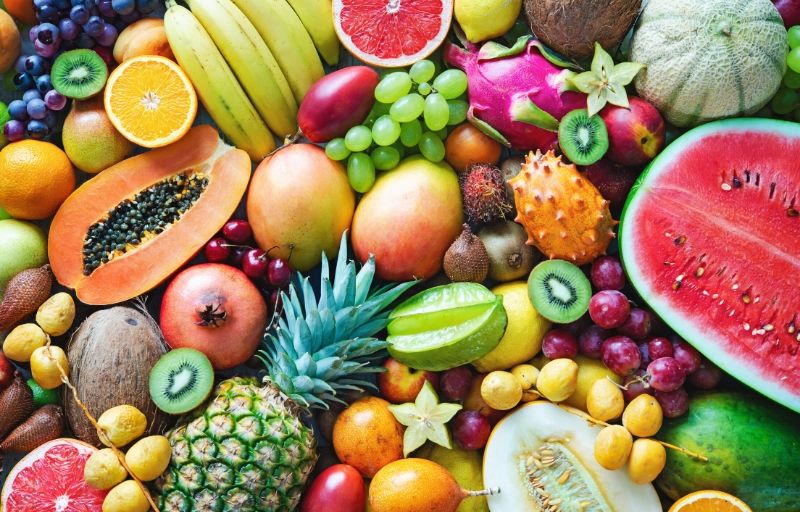Understanding coronavirus and supporting immune health
Over the last few weeks, it’s been nigh-on impossible to avoid news and talk about coronavirus. We live in a digital age and can all access a wealth of information at the click of a button, which can sometimes be helpful, yet often not so. To quote Dr Tedros Adhanom Ghebreyesus (Director General of the World Health Organisation) ‘We are not just fighting an epidemic; we’re fighting an infodemic… This is a time for facts, not fear. This is a time for rationality, not rumours.”

I decided to write this article to provide a simple overview on coronavirus, an understanding of where you can access updates you can trust, and some simple and practical ways to support your immune health to protect yourself and others around you. I hope you find it useful.
So what is coronavirus?
The name coronavirus comes from the virus’s shape, which, under a microscope looks like a globule surrounded by ‘crown-like’ spikes. Coronaviruses are actually a large family of viruses, which are common throughout the world, and cause a range of illnesses from the common cold to more severe respiratory conditions like pneumonia. The latest strain of coronavirus (COVID-19) was first identified in December 2019 and is thought to have spread from a meat market in Wuhan, China.
Research on the known cases so far suggests that the vast majority are mild. The NHS has warned the public to look out for a cough, high temperature and shortness of breath, these symptoms are very similar to the flu. Experts haven’t yet been able to give us conclusive advice on how the virus compares to seasonal flu, or on its fatality rate. This is because COVID-19 is a new illness and there simply isn’t a long enough stretch of data from which to base this information.
Currently, there’s no specific cure because COVID-19 hasn’t been around long enough for a cure to be developed. Fortunately, we do have extensive knowledge about existing viruses, and how our immune systems fight them. This advice relates not just to the current situation but also to protecting your immune health overall.
Practical strategies to prevent the spread of coronavirus
1. Wash your hands frequently with hot water and soap for 20 seconds (or the time it takes to sing Happy Birthday!) This is especially important after going to the bathroom, before eating, and after blowing your nose, coughing, or sneezing. If hot water and soap are not available to you, use hand sanitiser, however, remember that corona is a virus so will not be killed by anti-bacterial products.
2. Cover your nose and mouth when you cough or sneeze with something disposable if possible, or your sleeve.
3. Try not to touch door handles, taps and other surfaces in public spaces.
4. Try not to touch your eyes, mouth or nose, especially if you haven’t washed your hands.
5. If you are concerned, call your GP or 111. Do not visit the surgery.
Nutritional strategies to support immune health
If you are unfortunate enough to contract coronavirus, it will be down to your immune system to fight it off. Your immune system has a number of ways to detect and destroy anything it recognises as foreign to your body. Every day we battle bacteria and viruses without even knowing it.
As well as skin, we have mucus and of course our much-undervalued micro-biome. If a pathogen breaches these defences, it has to deal with our white blood cells or immune cells. The strength of the immune system varies from person to person and, what’s more, from day to day because its ability to fight off infection fluctuates depending on many factors.  Here are a couple of things you can do to keep your immune system in check during the COVID-19 outbreak:
Here are a couple of things you can do to keep your immune system in check during the COVID-19 outbreak:
1. Eat plenty of fruit and vegetables
Ensuring there are lots of vegetables in your food and you are varying your meals will strengthen your immune system and help to fight off viruses. Fruit and vegetables provide anti-inflammatory antioxidants, as well as key nutrients known to help the immune system function, including vitamins A and C and folate. They also provide bioactive compounds that provide a chemical signal that optimises immunity in the gut; the location of 70-80% of immune cells.
2. Look after your micro-biome
Most people are aware of how bacteria supplements and fermented foods can benefit your digestion, but many don't realise how good they can be at supporting the immune system. Over 70% of the immune system resides in the lining of the gut and is supported by a diverse community of bacteria. Beneficial species of gut bacteria have been shown to influence both the innate and acquired immune systems. Taken over the winter months, probiotics have been shown to significantly shorten common colds and reduce the severity of symptoms.
3. Keep active
To be immunologically fit, you need to be physically fit. White blood cells can be quite sedentary, but exercise mobilises them by increasing your blood flow, so they can get to work throughout your body. The advice for older people, who are more vulnerable to infection, is to do whatever exercise is possible. Anything’s better than nothing. Exercising and eating well will have the likely knock-on effect of helping you sleep better, which is a bonus because a tired body is more susceptible to viral infection.
Beyond this simple lifestyle advice, you can give yourself the best fighting chance by stocking up on these important, immune-supporting nutrients:
Vitamin C: a powerful antioxidant which supports the body’s ability to fight infection. We know that vitamin C shortens the duration of the common cold, and can significantly reduce mortality in patients with severe sepsis and septic shock. An interesting study conducted in Zhongnan Hospital in China has shown some success in treating coronavirus with Vitamin C. Good food sources include citrus fruits, green vegetables, kiwi fruit, berries and bell peppers.
Vitamin D: an important nutrient for overall health, and studies have shown that people low in this vital vitamin are at a greater risk of infection, including those of the upper respiratory system. In the winter months, low levels of sunlight mean we need to obtain vitamin D from our diets. There are only a few food sources, of which the best are oily fish such as salmon and mackerel, eggs and mushrooms. Including a selection of these foods regularly throughout the winter months is a good way to top up your vitamin D levels.
Quercetin: is a naturally occurring flavonoid found in plant foods which has been found to protect against disease and improve our cells ability to fight infection.
Elderberry extract: extracts of elderberry are proven to be beneficial for reducing symptoms of influenza and the common cold.
N-Acetyl cysteine: can be taken in supplemental form and can boost the body’s production of glutathione – a master antioxidant. Supplementation over a six month period has been shown to reduce flu symptoms and reduce days in bed.
Selenium: deficiency seems to speed up the rate that viruses can mutate, and influenza has been found to be more pathogenic in selenium-deficient mice. To ensure you have robust selenium stores, be sure to include foods like brazil nuts, oats, sunflower seeds, fish, turkey and chicken.
Zinc: plays an important role in the function and proliferation of various immune cells. Even mild to moderate deficiency can have a negative impact on the immune system’s ability to deal with infection. Multiple studies have shown low levels of zinc are associated with increased risk of infections such as pneumonia. The body doesn’t have much ability to store zinc so it’s crucial that your daily diet supplies plenty of this immune-boosting mineral. Good sources are meat, chickpeas & lentils, pumpkin and sesame seeds.
Vitamin A: several immune system functions rely on vitamin A and deficiency is known to impair the innate immune system. Vitamin A also regulates some genes involved in immune function.
Vitamin A is found in the diet in two forms: beta-carotene (found in red, yellow and orange plant foods) and retinol, or ‘active vitamin A’ (found in high-fat animal foods such as eggs, butter, liver and full-fat dairy products).
Whole foods known to support your immune system:
Green tea: contains flavonoids that are believed to help block the production of virus-spreading enzymes in the body. It’s also extremely high in antioxidants and can give our bodies a much-needed boost to help fight viral symptoms when we become infected by a virus.
Garlic: has been found to fight viruses and encourage faster recovery from viral infections. Allicin, a compound in garlic, is known to boost the white blood cell’s response to illness.
Mushrooms: can enhance your immune system and inhibit the replication of a virus. The therapeutic component in these wonderful fungi act as antibacterial, anti-inflammatory and cell-regenerating agents.
Ginger: provides antibacterial, antioxidant and anti-inflammatory action to relieve the unfavourable symptoms of flu.
Apple cider vinegar: has anti-viral and probiotic properties which are brilliant at boosting your immune system.
As you can see, there is much you can do to protect yourself and loved ones as the virus progresses. If you are at all concerned about coronavirus or suspect you may be suffering from symptoms, it’s vital you phone your GP or call 111.
Remember you can access daily updates from Public Health England and the UK Department of Health and Social Care here.
You can also find a professional nutritionist to seek advice on how to boost your immune system. Many nutritionists now offer phone, email and video-conferencing options.
And, if you have any questions or would like to focus on building your natural resilience you can contact me. I would love to hear from you.

Find a nutritionist dealing with Balanced diet
All nutrition professionals are verified



